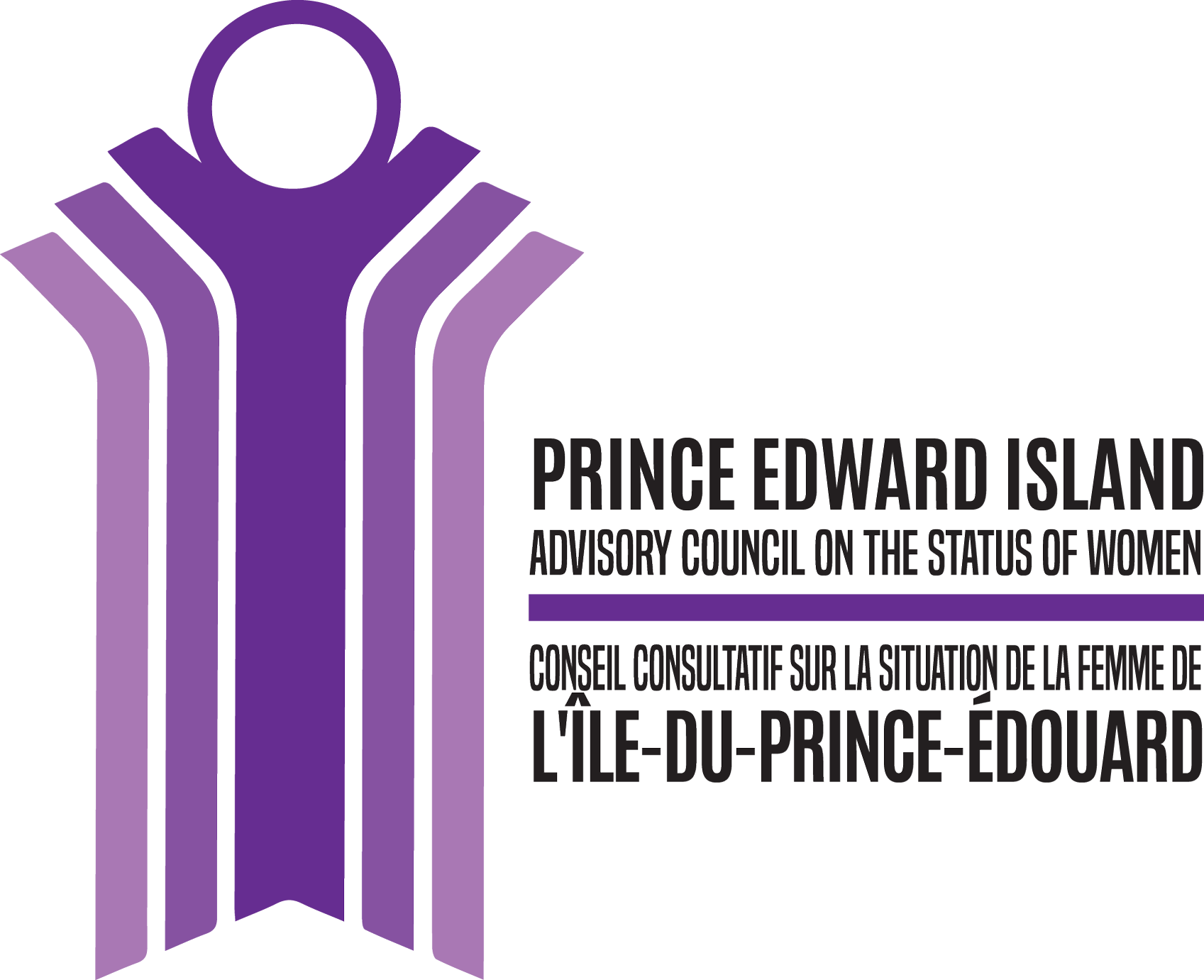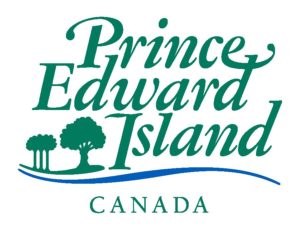Input on Consultation Draft Regulations for the
Post-Secondary Institutions Sexual Violence Policies Act
PEI Advisory Council on the Status of Women
December 16, 2019
The Prince Edward Island Advisory Council on the Status of Women (PEIACSW) is a nine member,
government-appointed arms-length government agency with a mandate to
advise government and educate the public on matters that relate to the status of Prince
Edward Island women.
The Advisory Council on the Status of Women would first like to acknowledge that we
have been included in consultations in the development of the Post-Secondary
Institutions Sexual Violence Policies Act and the development of the draft regulations.
Throughout these consultations, we have been very pleased and impressed with the
consultation process and the professionalism of the consultants on behalf of the
departments responsible. We have been able to see our advice reflected accurately and
respectfully in meeting notes and then in the legislation and draft regulations. We are
impressed with the seriousness of intention that the Province has brought to regulating
post-secondary institutions sexual violence policies.
Likewise, in our estimation, the proposed regulations to accompany the Post-Secondary
Sexual Violence Policies Act reflect the content and intent of the consultations we
participated in and, in general, support the goal of ensuring Prince Edward Island post-secondary
institutions have comprehensive and effective sexual violence policies that
will help to address sexual violence against students and other members of these
institutions.
In that spirit, we have the following input on the draft regulations.
General
While we understand the value of student-centred language in the regulations, and
while the use of “affected students” throughout the regulations deftly deals with the
challenges posed by power-heavy, contentious words such as “victims,” “survivors,”
“perpetrators,” and “rapists,” the focus on students leads us to questions.
Do the regulations unnecessarily narrow the scope of post-secondary sexual violence
policies to students?
We agree on the primacy of institutional accountability for students affected by
sexualized violence. Students are affected by specific power imbalances within postsecondary
institutions and tend to be in demographics that are over-represented among
those who experience sexualized violence. However, non-students at post-secondary
institutions can be and are also affected by sexualized violence.
Getting at the root of sexualized violence in rape culture, gender inequality, and other
inequalities will require transforming institutional cultures. This transformation will
require the engagement of whole institutions and is more likely to be supported by
sexual violence policies that include more than students.
Recommendation: That where the regulations refer to “a student” or “students” that
the wording be expanded to include campus community members in addition to
students, such as faculty, including sessional faculty, and staff.
Section 2: Accommodations to Be Provided and Reasonable Period of Time
It is wholly appropriate that post-secondary institutions should have policies to ensure
“appropriate accommodations” for those who experience sexualized violence, and that
accommodations “are provided to the affected student [person] within a reasonable
period of time.” However, institutional policies may interpret “a reasonable period of
time” quite differently than the individual who experienced sexualized violence. We
would like policies to be required to specify a time period for accommodation, so that
accommodations are provided to the affected student within a maximum of two
weeks of the person contacting the support office or wording that limits institutions’
discretion to decide what is “reasonable” for someone who has experienced trauma.
In this case, we imagine, for example, a student who experiences sexualized violence at
the hands of a person who shares their chemistry lab time. It might be considered
“reasonable” to a university to take several weeks or a month to deal with
administrative and bureaucratic work of sorting out an accommodation, such as
assigning the person who harmed the affected student another lab time. However,
semesters are short. A semester could expire before the accommodation was even in
place. As such, a several-week timeline for accommodation would be far from
reasonable for the survivor.
In fact, it may be more important to the survivor’s long-term recovery from trauma for
accommodation to be made in the earliest possible hours after experiencing violence or
disclosing violence.
Section 3: Information to be included
Section 3, subsection (1)(a) and (b) both relate to information about support services
being provided to people who have experienced sexualized violence. The period of time
following an incident of sexualized violence is an incredibly traumatic period for
survivors; often, so is the time around disclosure of sexualized violence. In our view,
post-secondary institutions’ sexual violence policies will not serve survivors adequately
if the onus remains on survivors to contact supports and services themselves.
In the regulations, post-secondary institutions’ policies would be required to include
policies on providing information about supports and services. For the health and longterm
wellbeing of survivors of sexualized violence, we would like these to go further and
to remove the task of seeking out supports and services from the person who
experienced sexualized violence. The proposed regulations would require institutions to
“(a) [provide] information about the supports and services available at the postsecondary
institution for students [persons] who are affected by sexual violence, and
[identify] the specific official or office at the post-secondary institution that should be
contacted to obtain the supports and services,” and also “(b) [provide] information
about the supports and services available in the community for students [persons] who
are affected by sexual violence.”
We advocate for policies to require a warm hand-off to supports and services. This
would mean instead of the person responsible for providing information handing on a
pamphlet and a phone number, or pointing out a poster, that person would actively
facilitate putting the survivor in direct contact with the support or service. This could
look like asking the survivor’s permission to dial the number for a support or service
with them. It could look like getting the survivor’s contact information and permission
so the support or service would reach out to them to inform them about the support
and service available. The warm hand-off to supports and services should be required
within a short timeline, particularly within the crucial, vulnerable 48- to 72-hour window
either after the violence occurred or after the disclosure.
Additionally, in Section 3, some clarification may be needed to sub-sections related to
investigation and confidentiality, as follows.
Section 3(2)(b) states, “the process for deciding whether an incident or complaint of
sexual violence will be investigated by the post-secondary institution.” The regulations
may need to take into consideration broader aspects of investigation. The regulations
cover investigations “by the post-secondary institution,” but do not cover investigations
referred to a third party or to police.
It should be required within policies to at least also include the process for deciding
whether an incident or complaint of sexual violence will be referred to a third party
for investigation or to police or justice officials.
Adding this regulation would have direct bearing on 3(2)(c) “that a student [person]
affected by sexual violence may choose not to request an investigation by the postsecondary
institution, and that, if the post-secondary institution pursues the complaint,
the student [person] has the right to choose whether to participate in any investigation
that may occur.”
While offering this choice appropriately centres the rights of the survivor, some of the
survivor’s choices may become moot in an investigation by a third party or police.
Unless there is a clear process for whether to refer investigations to a third party or to
police, there is also a strong risk of policies harbouring and tacitly protecting serial
perpetrators within their institutions. It’s a fine balancing act, but this would not serve
the broader purpose of the Post-Secondary Sexual Violence Act.
Section 3(2)(i) would require policies to include information on “the measures that will
be implemented to protect and keep confidential personal information that comes to
light in the course of the investigation of the persons involved in the incident or
complaint.” Confidentiality is crucially important but has also been used as a means of
silencing survivors and keeping stories secret and stigmatized. Institutions, like families,
are only as sick as their secrets. To measures “to protect and keep confidential personal
information that comes to light in the course of the investigation of the persons
involved in the incident or complaint,” it would be good to add measures to allow and
not limit survivors of sexualized violence from naming their experience and sharing
their story.
Section 4: Development and amendment of sexual violence policy
In section 4(1), where it requires that sexual violence policies be “culturally sensitive and
[reflect] the perspectives of those most vulnerable to sexual violence,” we would like
“gender-responsive” added to the wording, as follows:
4(1) For the purposes of subsection 3(2) of the Act, a post-secondary institution shall (a)
establish a process, in consultation with representatives of the post-secondary
institution’s elected student governing bodies, for the provision and consideration of
input from a diverse selection of students [as well as faculty and staff], including those
most vulnerable, regarding the postsecondary institution’s sexual violence policy to
ensure its policy is gender responsive and culturally sensitive and reflects the
perspectives of those most vulnerable to sexual violence
Section 6: Training
To the sub-sections on training, we would like to see a requirement added that the
required training be provided by an individual trained in trauma-informed approaches.
Having a trauma-informed approach to training is important for those who receive the
training, some of whom will be survivors of sexualized violence, as well as for increasing
the positive effects of the training.
Again, we thank you for the opportunity to make input on the draft regulations. This is
important work by government and could have significant, lifelong effects that aid in the
health and wellbeing of students and others associated with our post-secondary
institutions. Strong post-secondary sexual violence policies could substantially mitigate
the long-term effects of the harm experienced by survivors of sexualized violence.
Sincerely,
Debbie Langston, Chairperson


